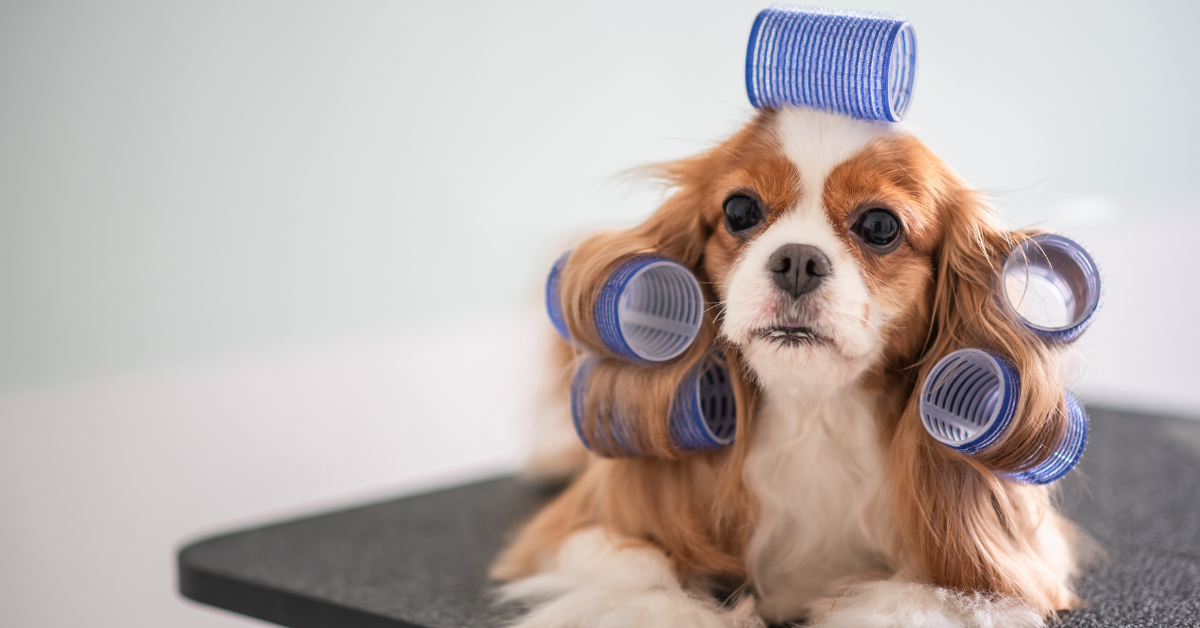As temperatures drop and we switch our wardrobes to suit the colder months, it’s important to remember that our pets also need adjustments in their grooming routines. Winter can be tough on a pet’s skin and coat, with dry air, cold winds, and wet conditions all posing potential threats. At Wild Things Animal Hospital, your reliable local vet serving Clarksville and Nashville, we’ve compiled a comprehensive guide to help you ensure your pet stays comfortable and well-groomed this winter.
Understanding Winter Skin and Coat Challenges
Dry Air and Skin Health
Winter’s dry air can strip moisture from your pet’s skin, leading to dryness, flakiness, and irritation. Maintaining skin and coat health is crucial during these months to prevent discomfort and potential skin infections.
Mud and Debris
Pets that venture outside can collect mud, ice, and de-icing chemicals in their fur, which can irritate the skin and paw pads. Regular grooming is essential to remove these irritants and prevent matting.
Key Winter Grooming Practices
Regular Brushing
Brushing is more crucial in the winter than at any other time. It helps distribute natural oils, preventing dry skin and enhancing the coat’s insulation properties.
Tips:
- Frequency: Brush your pet several times a week, depending on their coat type.
- Tools: Use a brush suited for your pet’s coat. A slicker brush or a rake can be perfect for managing winter coats.
Bathing Best Practices
While it’s important to keep your pet clean, over-bathing can remove essential oils from their skin.
Tips:
- Reduced Bathing: Limit baths during winter and use lukewarm water when you do bathe your pet.
- Moisturizing Shampoos: Opt for pet shampoos that have moisturizing properties. Avoid human shampoos, which can be harsh on your pet’s skin.
Paw Care
Paws are particularly vulnerable to winter conditions; ice, snow, and de-icers can cause cracks and discomfort.
Tips:
- Paw Washing: Clean your pet’s paws with warm water after walks to remove ice and chemicals.
- Protective Balms: Apply a pet-safe paw balm to protect and soothe their pads.
- Booties: Consider using pet booties for outdoor walks to provide additional protection against harsh conditions.
Coat Length and Insulation
While it might be tempting to give your pet a shorter haircut for ease of maintenance, a longer coat will provide more warmth.
Tips:
- Trimming: Keep fur trimmed to reduce the chances of ice balls forming in longer coats.
- Haircuts: Schedule haircuts to maintain a manageable length that still provides insulation.
Monitoring Skin Condition
Keep an eye on your pet’s skin condition throughout the winter months. Look for signs of dryness, redness, or irritation.
Tips:
- Regular Check-ups: Visits to your Clarksville vet or Nashville vet can help if you notice any skin problems. Early detection and treatment can prevent more severe issues.
- Hydration: Ensure your pet stays hydrated, which can also help maintain skin and coat health.
Special Considerations for Different Pet Types
Dogs
Each breed has different needs. Double-coated breeds like Huskies require different grooming compared to short-haired breeds like Beagles.
Cats
Cats typically manage their grooming but may need help with matting in longer fur during the colder months.
Small Pets
Rabbits and other small animals also need adjustments in their grooming routines, especially if they spend time outside.
Partner with Your Vet for Winter Grooming
Winter grooming is vital for maintaining your pet’s overall health and comfort. At Wild Things Animal Hospital, we understand the unique challenges that winter poses to pets in the Clarksville and Nashville areas. We are here to help with tailored advice and services to keep your pet’s skin and coat in optimal condition throughout the colder months.
Let’s keep your pets happy, healthy, and well-groomed this winter!


